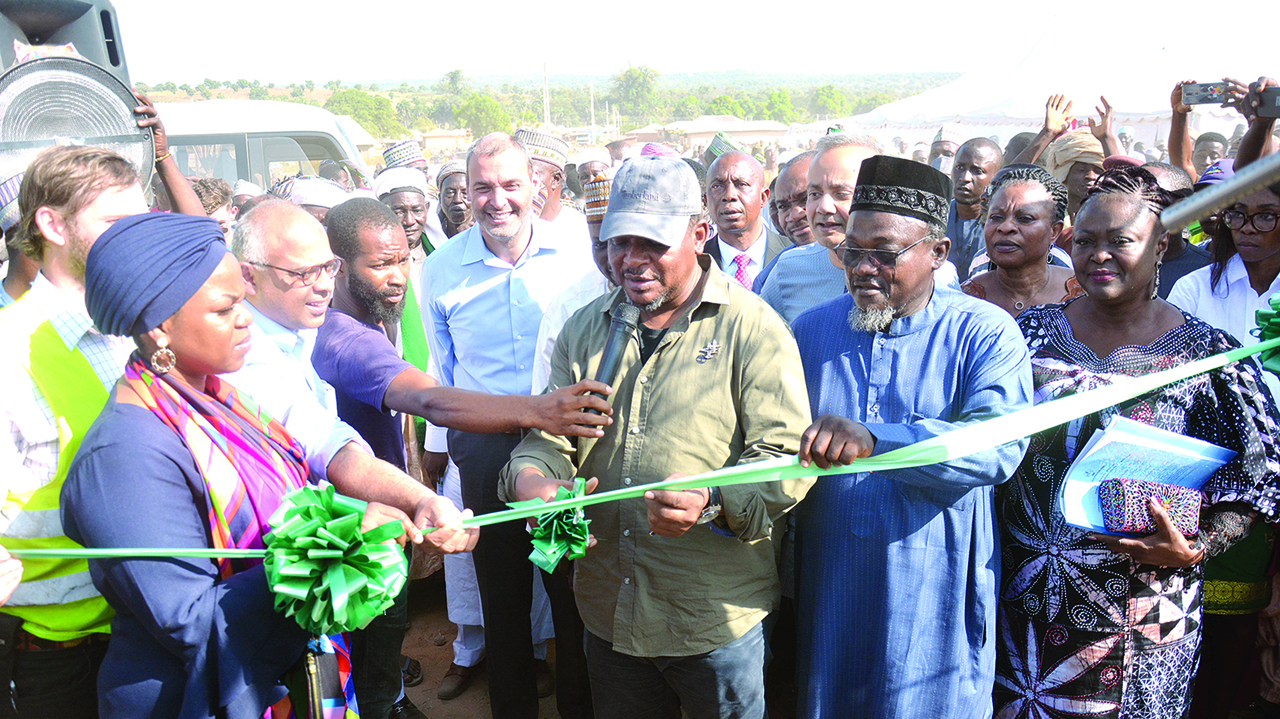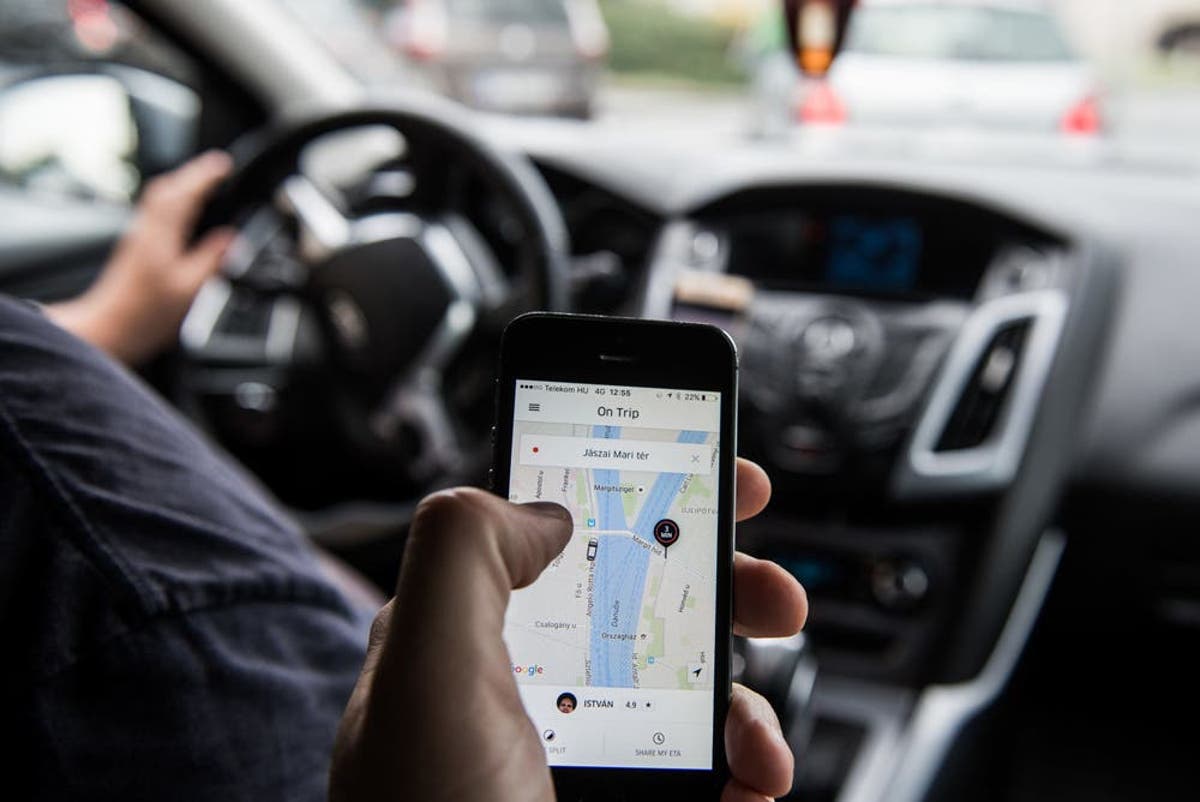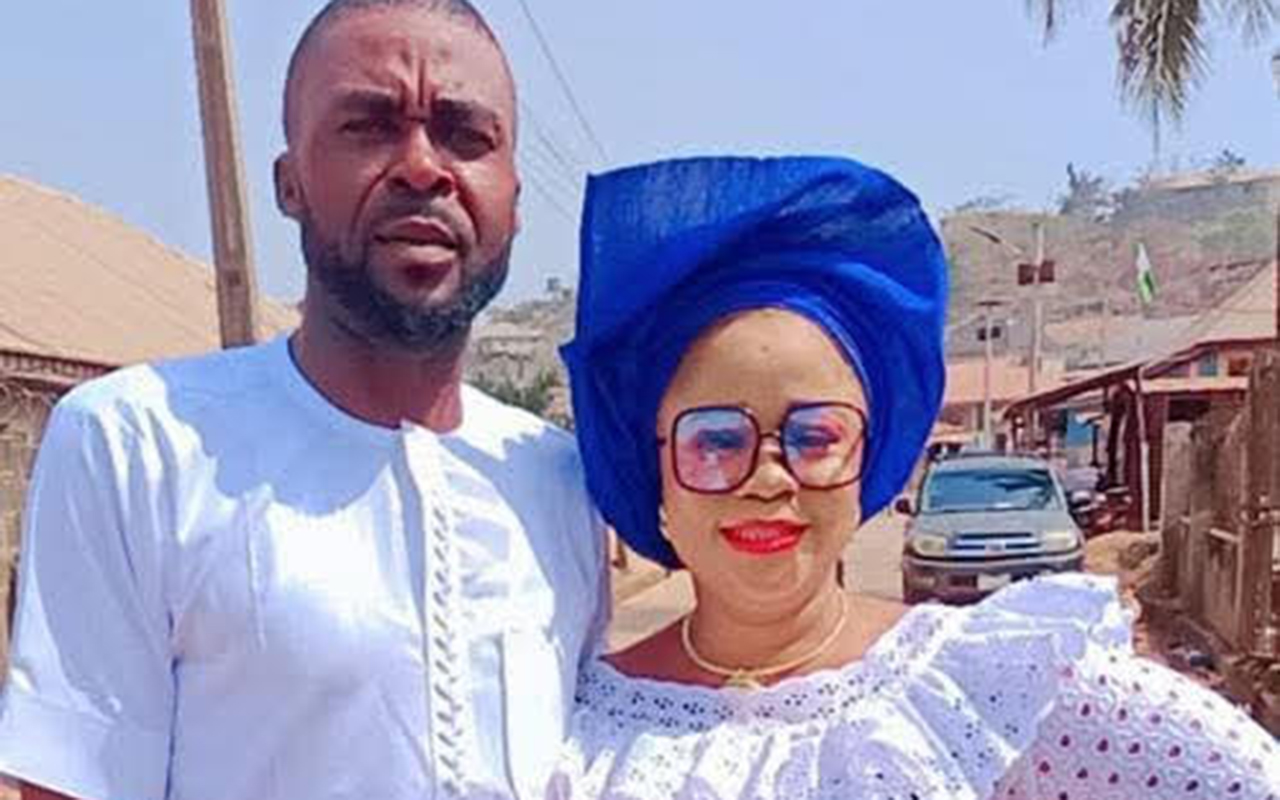
“Our children will no longer read with local lamps. We will have access to cold water. We are grateful that our community is remembered,” said Alhaji Adamu Mohammed, the traditional ruler of Rokota – a rustic community in Niger State.
“With this electricity life is good and life has become sweet. I now run borehole water conveniently.”
He was not alone.
The health officer at Rokota Lwemp Health Clinic, Mr. Ndachukwu Ibrahim, also noted: “This is a milestone in the history of this community; before we used to travel to about 10 kilometres for assistance. With this newly commissioned electricity, we have a small fridge now where we keep our medical pharmaceuticals. Now we have light to attend to our patients. With this, we are enjoying a new lease of life. We are grateful to the World Bank, REA, and Federal Government.”
On December 7 this year a new lease of life began for the Rokota people. Their faces beamed with joy and exhilaration. Their delight was indescribable. Something that touched the very core of their existence had just occurred. It is a project that will shape their present destiny and define their future and that of their unborn generation.
The project, a newly-installed 64kw mini-grid, is already eroding their pains and presenting them with gains, as the community can now build on their shea butter and palm fruit farming and other businesses with the supply of electricity and related amenities.
The mini-grid, a renewable energy project, commissioned on December 7, was made possible by the Federal Government in collaboration with the World Bank. Its aim is to increase universal access to electricity, especially in underserved and unserved regions as a part of the performance-based grant of the Rural Electrification Agency (REA). It is the first-of-its-kind in Nigeria.
The mini-grid, a 64kw solar hybrid, and 360kwh of battery storage is a testament to the pledge of the federal government to improve the lives of millions of Nigerians living in penury. The Rokota project stands out. Described as an innovative programme, the project will catalyse off-grid development in Nigeria, through the provision of grant funding, detailed market data, and technical assistance, in collaboration with the World Bank ($350 million) and African Development Bank ($200 million).
With a distribution network of 10km across the community, the mini-grid is expected to supply constant electricity to 326 households, which will propel economic growth and improve small and medium scale business activities within the community. New business opportunities will also be possible with the availability of reliable electricity. The NEP components are solar hybrid mini-grids, solar home systems (SHS) and the energizing education programme (EEP).
In his address during the commissioning of the project, the Minister of State for Power, Mr. Goddy Jedy-Agba, said: “I am honoured to be a part of this momentous achievement of the Rural Electrification Agency and the World Bank in collaboration with the Ministry of Power and the Federal Government of Nigeria.”
He added: “The commissioning of the 157KW capacity solar hybrid mini-grid power plant will provide economic growth and stability to the people of Rokota. The Ministry of Power is providing the needed support for the implementation of all Federal Government policies in the diversification of the energy sector. I am, therefore, thrilled that our drive has led us to this great event. This is only the beginning of greater accomplishments.”
The Rokota off-grid project is the first to be commissioned under the World Bank-supported Nigeria Electrification Project (NEP). It has the capacity to improve the lives of Rokota residents and by extension Nigeria’s overall development.
The project, it was explained, also illustrates the determination of the government to lift as many Nigerians as possible out of poverty and is expected to provide clean, safe and reliable electricity to 3,000 people in the community.
Rokota is the first community in Nigeria to benefit from the renewable off-grid electricity under the NEP mini-grid component. The component aims to provide clean, safe, reliable and affordable electricity to 300,000 homes and 30,000 local businesses in Nigeria.
The Managing Director and Chief Executive Officer of the Rural Electrification Agency, Mrs. Damilola Ogunbiyi, stated that the presence of power sector leaders, the project financiers, private sector developers, community leaders and captains of industries at the commissioning showed the importance of the project and she assured that the project will change lives through renewable energy solutions.
Ogunbiyi said: “I am proud to say that in line with the Federal Government’s power sector roadmap, the Rural Electrification Agency (REA) has supervised and implemented mini-grid projects across multiple rural communities, educational institutions, hospitals, and businesses.”
There are great investment opportunities in the off-grid sector, said the REA boss, adding that it is the reason most of REA’s projects are private sector-focused.
“This is why we partnered PowerGen on this project here in Rokota, to deliver this 157KW solar mini-grid project that will power over 326 households and transform the lives of countless more. I must commend the Federal Government of Nigeria and the Ministry of Power on its mandate in enabling private companies, like PowerGen, to participate in this space – all for the sustainable development of Nigeria’s energy sector,” Ogunbiyi added.
Similarly, in his goodwill message, the World Bank Country Director in Nigeria, Shubham Chaudhuri, affirmed the bank’s commitment to reducing the consumption and use of fossil fuels in energy production through renewable energy investment.
“I am thrilled to be here with you all as we witness the commissioning of the first solar hybrid mini-grid project under the Performance-Based Grant component of the Nigeria Electrification Project (NEP). This is a huge milestone that will set the pace for more impactful electrification projects under the World Bank-funded programme,” Chaudhuri explained.
The World Bank has already approved $350 million for off-grid electrification projects in Nigeria and beginning with Rokota, Nigerians have started benefiting from these projects.
“Aims and objectives are to eliminate extreme hunger, which will make life better. With a project like this, the statistics of about 600 million that have no access to electricity will be a thing of the past. The goal is to get electricity to every nook and cranny across the world. We are very happy to be part of this life-changing experience. Your children will read with ease, the community will have a health centre that runs smoothly,” said Chaudhuri.
Also delivering a speech at the event, Rohit Khanna, the Practice Manager of Energy Climate Finance & Energy Sector Management Assistance Program (ESMAP), stated that the project would improve the lives of the community and contribute to their economic development.
ESMAP as an alliance between the World Bank and 18 partners is dedicated to advancing energy transition through sustainable power solutions to reduce energy poverty and boost economic and developmental growth, especially in rural communities.
“Our role at ESMAP is to shape the World Bank Group strategies and assist it in implementing programs and policies that foster the use of renewable energy solutions for the conservation of the environment and climate,” said Khanna.
The World Bank’s Task Team Leader, Jon Exel, told the gathering that mini-grids are progressively emerging as a major cost-effective and reliable approach to electrifying unserved and underserved communities across Africa, with huge potential in achieving the bank’s energy goals of universal energy access.
“Our goal,” said Exel, “is to decrease energy poverty and reduce carbon emissions by funding renewable energy solutions to power communities such as Rokota, tertiary universities and teaching hospitals under the Energizing Education Programme and foster the provision of Solar Home Systems to households and enterprises through access to clean, affordable and reliable energy.”
According to him, the bank is currently one of the largest financiers in the energy sector, earmarking $350 million for the NEP.
With about 30 jobs created during the construction phase and many more jobs to be created with businesses growing from the stable electricity, Exel pointed out that the project firmly supports small-scale job creation initiatives and, as a result, improve the quality of life of over 1000 people in the community and beyond.
He also commended REA and PowerGen Renewable Energy, for working collaboratively in delivering the project.
“REA stands as a model agency to partner with thanks to their dynamic team and institutional capacity and processes,” said the World Bank representative.
Mr. Alastair Smith, the Managing Director of PowerGen Renewable Energy Nigeria Limited, noted while delivering a speech at the commissioning that the project will impact lives positively.
“We are happy and privileged to have brought this impactful project to the good people of Rokota Community. Thanks to the Nigeria Electrification Project, under the Performance-Based Grant, which we applied for, we have been able to deliver this solar hybrid mini-grid power plant in record time.
“I am proud to say that the mini-grid, with a total installed capacity of 157kw and 360kwh of battery storage, was delivered based on international best practice and standards,” Smith stated.
Mohammed, who could not hide his joy, said the community had looked forward to December 7.
“This is a major event and on behalf of the people of Rokota Community, we are grateful for this opportunity.”
He added: “At Rokota, our children can study under the glow of clean electricity. As enterprising people blessed with kaolin, red clay, and iron ore resources, we look further to more commercial activities and small businesses growing Rokota’s economy. For instance, I hear that there are already thoughts around large scale shea butter production.”
The vote of thanks was delivered by Mrs. Adejoke Odumosu, the Head of NEP PMU, who explained that the combined efforts of all those involved in the off-grid work resulted in the commissioning of the laudable project, noting that the project would not have been possible without the collaborative efforts of the Federal Government, World Bank, the Rural Electrification Agency, private sector developers and the people of Rokota.
Representative of Niger State governor, the Commissioner for Works and Infrastructural Development, Engr. Ibrahim Panti, also expressed gratitude to the Federal Government and the World Bank for the project.






